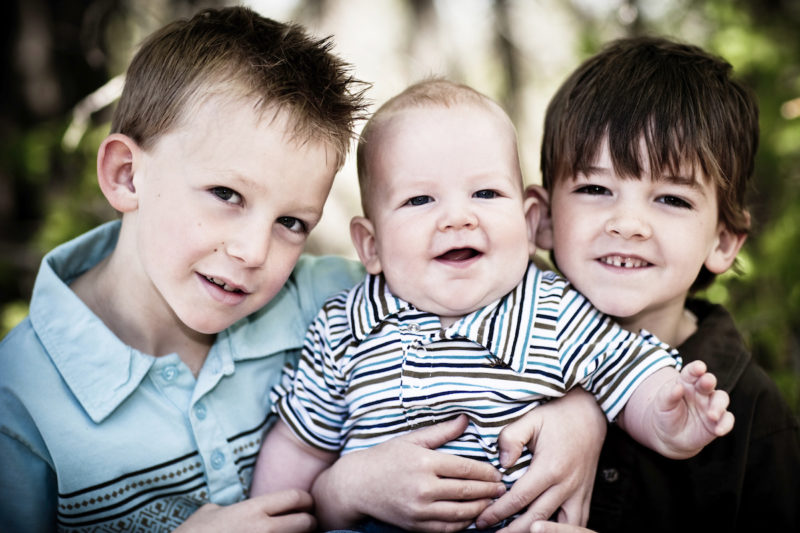Supporting siblings
Siblings of children with a limb difference also need time and support to understand, adjust to and learn to live with that difference.
How they navigate limb difference and the best way to support them will depend on their age, level of understanding and ability to engage in discussion. It may also be influenced by your own family structure, cultural factors and social issues.
Having open communication, recognising potential challenges faced by siblings, identifying how you can assist, and knowing when to seek support can be very helpful.
The result can be siblings who have greater compassion for and a better understanding of disability, are loyal to their brother or sister, and can be more open to diversity in our community.
Talking to a sibling about limb difference
When speaking with siblings always be honest and truthful. Try to be realistic, use positive language and have conversations that are appropriate for their age. For very young children there may not be a need to discuss their brother or sister’s limb difference yet, and as they grow up it can be gradually introduced. If you meet or see pictures of children or adults with limb difference it can be good to mention that they are similar to their sibling.
When talking to a sibling about limb difference you could:
- explain how it occurred – to allay any worries they may have that it will happen to them or that they caused it
- discuss the language your family wants to use to talk about their sibling’s limb difference
- explain that everyone is different (but making sure that your child’s limb difference doesn’t become a key feature of their identity)
- remind them that they have more in common with their sibling than they have differences
- help them to confidently answer questions when asked about their brother or sister’s limb difference.

Challenges faced by some siblings
While some children may seem okay, their behaviour may reveal that they aren’t coping. They may think that they are viewed as the sibling of a child with disability, rather than the individual they are.
They may be feeling:
- inconsequential – that their sibling matters more than they do
- confused about how they feel about their sibling (e.g. love, anger, jealousy or resentment)
- responsible for looking after and protecting their sibling
- embarrassed or sad about others’ reactions to their sibling’s difference
- frustrated, sad or guilty about their sibling not being able to play in the same way they can
- worried about their future and/or that of their sibling
- invisible – that they need not burden parents or carers with their own worries.
Tactics for supporting a sibling
There are many ways that you can support your child, including:
- answering any questions honestly
- encouraging them to talk freely about their feelings
- letting them know that it’s OK to feel angry, sad or frustrated at times
- celebrating their personal achievements
- seeking professional support if they are not coping.
Sometimes your child will share their feelings with you directly. But, at other times, they might not openly express concerns and instead demonstrate these through other behaviours such as:
- withdrawing from social situations
- excessive ‘acting up’ and/or attention seeking
- being overly concerned with being the ‘good child’ or ‘people pleaser’ in order to achieve recognition and approval.
Asking for extra support
If you think that your child needs some additional support, speak with your GP, social worker or a psychologist.
Several organisations exist to assist siblings, including:
